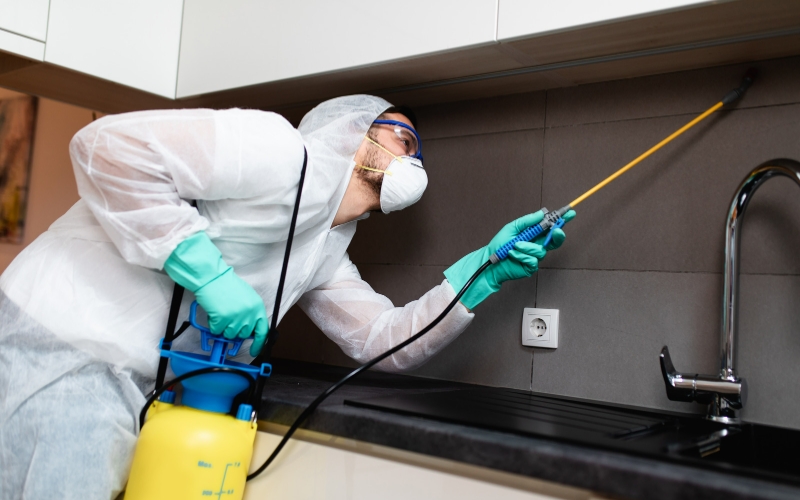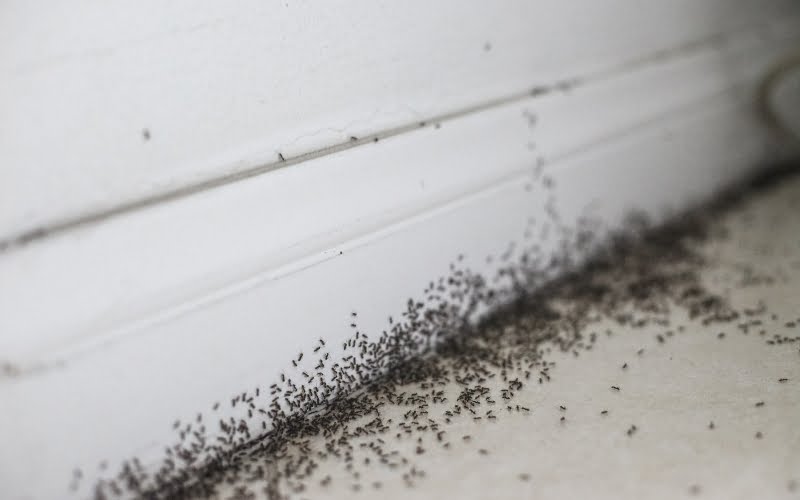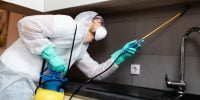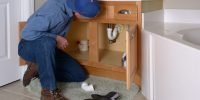Last Updated on March 18, 2024 by Kelvin Nielsen
As a tenant in Florida, you may be wondering who is responsible for pest control in your rental unit. The answer to this question depends on several factors, including the type of pest and the language in your lease agreement.
In general, landlords have a legal obligation to provide safe and habitable living conditions for their tenants, which may include addressing pest infestations.
If your rental unit has a pest problem, the first step is to notify your landlord or property manager in writing. Depending on the severity of the infestation, your landlord may be required to take action to eliminate the pests.
However, if the infestation is caused by your own actions, such as failing to properly dispose of garbage or keeping food out in the open, you may be responsible for the cost of pest control services.
Related Posts:
- Florida Tenant Rights When Landlord Sells Property
- Roommate Laws in Florida
- Can Landlords Shut Off Electricity in Florida?
Understanding Landlord Responsibilities for Pest Control in Florida
If you’re a landlord in Florida, you have certain legal obligations to ensure that your rental property is safe and habitable for your tenants. One of these obligations is to maintain a pest-free environment.
In this section, we’ll explore your responsibilities as a landlord in Florida when it comes to pest control.
Florida Law and the Warranty of Habitability
Under Florida law, landlords have a legal obligation to provide tenants with a safe and habitable living environment. This is known as the “implied warranty of habitability.”
This means that your rental property must meet certain sanitary, health, and safety standards, including being free from pests.
Common Pests and Infestation Issues in Florida Rental Properties
Florida is known for its warm and humid climate, which makes it a haven for pests. Some of the most common pests that can infest rental properties in Florida include cockroaches, ants, termites, bed bugs, and rodents. Infestations can be difficult to control and can cause serious health and safety hazards for tenants.
Lease Agreement Provisions and Pest Control
Your lease agreement should include provisions that address pest control. These provisions should outline your responsibilities as a landlord and your tenants’ responsibilities when it comes to pest control.
For example, you may require your tenants to keep the rental property clean and free from clutter, while you agree to provide regular pest control treatments.
Related Posts:
- Florida Landlord-Tenant Law: Security Deposit, Rent Increase, and More
- Florida Rent Increase Law: What You Need to Know
- Florida Health Codes for Rental Properties: What You Need to Know
Tenant Roles and Preventive Measures

As a tenant, you have certain responsibilities when it comes to pest control in your rental property. By taking proactive measures, you can help prevent pest infestations and ensure a habitable living environment.
Tenant Responsibilities
It is your responsibility to keep your rental unit clean and free of clutter. This helps prevent pests from finding places to hide and breed. You should also promptly report any pest sightings to your landlord in writing.
Proactive Pest Prevention
There are several steps you can take to prevent pests from entering your rental unit. These include sealing cracks and gaps in walls, floors, and ceilings, storing food in airtight containers, and regularly taking out the trash.
Seeking Remedy Through Legal Channels
If your landlord fails to provide pest control services or make necessary repairs to prevent pest infestations, you may have legal options. You can seek remedy through written notice, complaints to appropriate authorities, or even legal action.
Related Posts:
- Can a Tenant Withhold Rent for Repairs in Florida?
- Florida Lease Renewal Laws
- How to Sue Your Landlord in Florida
Frequently Asked Questions
What legal obligations do Florida landlords have regarding pest control?
Florida landlords are required to maintain the rental property in a habitable condition. This includes ensuring that the property is free from pests and rodents. Landlords must also comply with all applicable health and safety codes and regulations related to pest control.
Is it possible to terminate a lease in Florida due to a cockroach infestation?
Yes, it is possible to terminate a lease in Florida if the landlord fails to address a severe cockroach infestation. However, tenants must provide written notice to the landlord and allow a reasonable time for the landlord to address the issue before terminating the lease.
Under what conditions can a tenant sue a landlord for a rat infestation in Florida?
A tenant can sue a landlord for a rat infestation if the landlord knew or should have known about the infestation and failed to take reasonable steps to address it. The tenant must also provide evidence that the infestation caused harm or damage to the tenant or the property.
What constitutes uninhabitable living conditions with regard to pest infestation in Florida?
Uninhabitable living conditions with regard to pest infestation in Florida include severe infestations of rodents, bed bugs, or other pests that pose a health or safety hazard to tenants. Mild infestations that do not pose a significant risk to health or safety may not be considered uninhabitable.
Which types of pest exterminations are landlords in Florida required to manage?
Landlords in Florida are required to manage pest exterminations for all common areas of the rental property, such as hallways and laundry rooms. They are also responsible for managing pest exterminations for any pests or rodents that are present in the rental unit at the time of move-in.
Are Florida landlords required to address termite problems in rental properties?
Florida landlords are not required to address termite problems in rental properties unless the lease agreement specifically requires them to do so. However, landlords must disclose any known termite problems to tenants before they sign the lease agreement.
Disclosure: The content herein isn’t a substitute for advice from a professional attorney. It’s only meant to serve educational purposes. If you have a specific question, kindly seek expert attorney services.
Sources: Warranty of Habitability in Florida, Florida Landlord Tenant Rights

Amanda Rose is a seasoned landlord with 13+ years of expertise in overseeing diverse properties. Her adept management spans single and family homes, along with multi-family apartments and condos, across Wyoming and South Dakota. Her commitment and proficiency have cemented her status as a thriving property management professional.
She is a member of the following organizations: Wyoming Landlord’s Association, National Association of Residential Property Managers (NARPM), Wyoming Apartment Association, South Dakota Multi-Housing Association (SDMHA), and South Dakota Landlord Association (SDLA).







